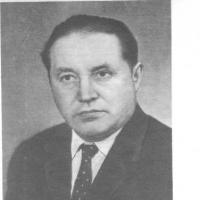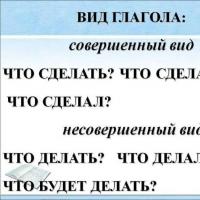Can a person live without society? Can a person exist outside of society? People who grew up outside society: examples Can a person live without society
The theme of the relationship between man and society is relevant to this day. Society is a part of the world that lives and develops, has its own rules and values. The constituent of this group is none other than man. It is people who can influence the development of culture, technology and change other people's views. But it often happens that several opinions collide, which is where the conflict comes from.
There are examples in the literature of social conflicts. Recall Chatsky from the comedy "Woe from Wit" by A. S. Griboyedov. Chatsky, who has his own opinion, expresses it against the Famus society, condemns servility, ignorance and bribery. There is a clash between the "current century" and the "past century", because Chatsky is not used to lying and adapting, and this does not suit the Famus society.
Alexander Andreevich defends a real person, mind and culture. He expresses his point of view in disputes and conversations, directing his mind and determination to this. Those around take revenge on Chatsky for the truth, which they cannot accept; revenge for the fact that Alexander tried to destroy their usual way of life. The young man accepts that he will not be able to find supporters and friends in Moscow; he is struck by the fact that Sophia loves Molchalin - such a vile and helpful person. This blow was the last for Chatsky - he practically runs away from Moscow, broken and defeated. But at the same time, Alexander understands that he will not be able to live a full life outside of society. This honest and just man will have a hard time.
I want to give another literary example. Consider M. Yu. Lermontov's novel "The Hero of Our Opinion". Pechorin found himself out of society with his narrow-mindedness and mediocrity. He did not want to try on any of the popular social media. roles, so he always tried to be the exception to the rule. He plays with the fate of other people, putting himself in atypical circumstances. Pechorin either convinces himself of his love for Bela, or pretends to court Marie, or sets off after Ondine. Seeking adventure, he ignores moral standards and interests. The peculiarity of Gregory was aimed at destruction. This man suffers because of his alienation, his rebellion is meaningless. In this case, society could teach and save a person if he listened to someone else's opinion. But he did not listen - he forced himself out of society, because not a single person could help him.
From my reasoning, I want to conclude that man is a social being. The development of man depends entirely on society, just as the development of society depends on man. Outside of society, only degradation and madness is possible. In life, people develop qualities and talents that form consciousness and intellect. And this can only be done in society.
Research topic
Why can't a person live alone?
Relevance of the problem
Man is a social being, and man cannot live without society.
Target
To prove that one person is a rather weak creature.
Tasks
Hypothesis
If people live without contact with each other, without each other's help, society will disappear.
Research stages
1. Studying the literature on this topic.
2. Collecting the necessary information.
3. Conducting a survey.
4. Making the scheme "my humanity"
5. Summing up.
6. Create a presentation.
Object of study
Man among other people.
Methods
1. Studying the literature on this issue.
2. Search.
3. Observation.
4. Practical.
5. Questioning.
Progress
1. Distribution of children into groups.
2. Collection of material on this issue.
3. Discussion of information.
4. Registration of results in the scheme.
5. Presentation of the work.
Question theory
As a result of a long development, humanity gradually reached the modern level. How much time has passed since the time when primitive people appeared, there is no exact answer. But most scientists believe that at least two million years have passed. Primitive society (also prehistoric society) is a period in the history of mankind before the invention of writing, after which there is the possibility of historical research based on the study of written sources. The term prehistoric came into use in the 19th century. In a broad sense, the word "prehistoric" is applicable to any period before the invention of writing, starting from the moment the Universe arose (about 14 billion years ago), but in a narrow sense - only to the prehistoric past of man. Usually in the context they give indications of exactly which “prehistoric” period is being discussed, for example, “prehistoric apes of the Miocene” (23–5.5 million years ago) or “Homo sapiens of the Middle Paleolithic” (300–30 thousand years ago). Since, by definition, there are no written sources left by his contemporaries about this period, information about it is obtained based on the data of such sciences as archeology, ethnology, paleontology, biology, geology, anthropology, archaeoastronomy, palynology.Our most ancient ancestors were very similar to monkeys. Their body was covered with hair, the jaws protruded forward, and the chin was beveled back. Primitive people already walked on two legs. They lived in caves and rock crevices. They heated their dwellings with fires, on which they cooked food.
Scientists believe that the ancestors of the first people were monkeys, which, under the influence of external factors: climate, the struggle for survival, gradually acquired human features. The earliest ape-men lived in warm lands. For example, in East Africa. They appeared there more than 2 million years ago. In another way, they are also called primitive people. These people did not yet know how to talk and communicated with each other using a variety of sounds. Their brains were better developed than those of a monkey, but, of course, not as well developed as those of people of our time. In the fact that people strive for contact and find in it the source of their existence, lies the deep secret of the power of nature, the source of existence. All living things strive for unity. But unity is the source of existence not only of the living. To live together with people in society, a person must limit his desires. Outside of society, human life is impossible. Primitive people could not survive alone and united in groups - human herds. In search of food, they collected edible fruits, herbs, roots, insects, or, as they say, they were engaged in gathering. Society appeared precisely because people could not live on without contact with each other, without the help of each other. One person is a rather weak creature. Wolves, bears, and any other large animal could attack him. This already made people unite, stick together to resist the beast. But the need for people to be together does not end there. All of you, probably, saw hunting of wolves for an elk. One wolf will not overcome a healthy elk, but together - yes. In the same way, people needed to unite in their hunt for an animal.

People earned their livelihood by hunting, which they conducted jointly, and by gathering. Human communities were small, they led a nomadic lifestyle, moving in search of food. But some communities of people who lived in the most favorable conditions began to move towards partial settlement. The most important stage in human development was the invention of language. Instead of the signal language of animals, which contributes to their coordination in hunting, people got the opportunity to express in language the abstract concepts of “stone in general”, “animal in general”. This use of the language led to the ability to teach offspring with words, and not just by example, to plan actions before hunting, and not during it, etc. People did not know metals and the knives, axes, and axes they needed - primitive tools - were made of stone or with a stone. Therefore, the time when they lived is called stone age. The ability to make tools of labor and distinguished, first of all, the most ancient people from animals. One day a man mastered fire. It was truly a great event. People began to cook food on fires, bake meat on coals, which turned out to be tastier and more nutritious than raw meat. A bright fire warmed them on a cold night, dispersed the darkness, scared away wild animals. With the help of fire, primitive people took another important step towards leaving the animal world. Gradually, people mastered the cold countries of Europe and Asia, including the south of present-day Russia. In a more severe northern climate, they needed reliable shelters in case of bad weather, icy winds and frosts. People began to settle in caves or dugouts and huts built by them. They covered the walls of the huts with the skins of large animals, as is done now by some northern peoples. Skins were also the first clothing of man.

In cold climes ancient people could not subsist on food gathering alone. Hunting became the most important occupation. With the development of hunting, the first weapon appeared - a spear - a long pointed stick made of wood. Later, a stone spike was tied to it.

They hunted animals with spears, and for the extraction of large fish they used a bone harpoon - a short spear with a sharp bone tip. The bow and arrow became the next greatest invention of people. It became possible to hit animals and birds from a great distance. Hunting became more successful and easier, people had more food. Approximately 40 thousand years ago, man became the same as people of our time. Scientists call him "reasonable man." “Reasonable people” no longer lived in human herds, but in tribal communities. What does it mean? In the community, all close and distant relatives were considered one family. The custom was one for all, all for one. The dwelling, a fire, stocks of firewood and food, bones and skins of animals were common. At the head of tribal communities were elders - the most experienced and wise old men. Several tribal communities made up a tribe. The tribe was ruled by a council of elders. All the peoples of the Earth in their history have passed the stage of tribal communities. Many dangers awaited our ancestors in life, they saw a lot of incomprehensible, mysterious things around them. Why does lightning flash and thunder rumble? Why is it hot in summer and cold in winter? Why do you have dreams and who commands the herds of animals? People have a belief that in every person, in any object and natural phenomenon, supernatural beings live - the soul and spirits. The soul leaves the human body during sleep. She meets with the souls of other people, and the sleeper dreams about it. Ancient people believed that the souls of ancestors continue to live in a distant “land of the dead”. They believed that the soul of a person can move into an animal or some object, and the spirit of an animal or object - into a person. The person in this case became a "werewolf".

The spirits of animals, objects and phenomena could be good and evil. The most powerful spirits, older than others, people called gods. They began to be addressed with a prayer - a request for good luck in business. And so that the gods would not refuse, various offerings were made to them, gifts - sacrifices. People made images of gods and spirits from various materials in order to pray to them and make sacrifices. Such images are called idols. The beliefs that appeared among primitive people - in witchcraft, in werewolves, in the soul, in life after death, in spirits and gods - are called religious. People believed in a supernatural connection between the animal and its image created by the artist. And if, before hunting, draw a deer, perform a witchcraft rite, hitting this image with spears, then the hunt will be successful. To this day, drawings of the most ancient artists, amazing in terms of technique, have been preserved in the Altamira cave in Spain and in the Lascaux cave in France. These works of primitive art are from 14 to 17 thousand years old.

Society is a historically developing system consisting of people and their relationships, serving as an effective means of satisfying the material and spiritual needs of people. Relationships with other people bring material benefits to a person, which can be divided into two groups. The first is the benefits of joint action: for example, one person cannot move a blocking stone, but two can. By joint efforts, people build canals, erect buildings and much more that one person cannot do. The second group is the benefits of specialization. It is unlikely that the doctor should try to figure out the device of the TV, it is much easier for him to call the master. In turn, the television master is hardly worth treating the disease himself, it is better to use the services of a doctor. Society also plays an important role in the process of meeting the spiritual needs of man. Without other people, a person cannot become a person; he becomes a person in society. Ultimately, self-actualization is about revealing the inner self to others. Indeed, why write poetry if no one will read them, why draw pictures if no one sees them? A person cannot live without society, and therefore not a single person voluntarily interrupted contacts with society.

Questionnaire
- Do you have a friend? If so, why do you consider him your friend?
- What character traits, qualities of a friend do you value most of all?
- Is your friend ready to give up his interests if your affairs, your well-being require it?
- What transgressions could you forgive a friend?
- What could you not forgive him for?
- Do you always tell your friend the truth?
- Are you always principled in friendship? Can you speak out publicly against a friend if they are wrong?
- Does friendship help you in life, study?
- Can friendship make a person better, save him from shortcomings?
- Friends reveal their secrets to each other, because in their friendship there is such a feeling as ...
- Friends tell each other everything without hiding anything, because there is a feeling in their friendship….
- Friends owe... each other.
- If one person has a misfortune, how can a friend help in this situation?
- What makes a relationship between friends noble and pure?
- If your friend is sick, what should you do?
Our results
1. Studied materials on the topic.
2. Collected information.
3. Conducted a survey.
4. We learned that a person is a social being, and without society he cannot exist.
5. Made a diagram.
6. Draw conclusions.
7. Made a presentation of the work.
conclusions
1. For development, a person needs society.
2. Not a single person voluntarily interrupted contact with society.
3. Human development is continuous.
List of resources
Printed editions:
- A. A. Vakhrushev The world. 4th grade. "Man and Humanity". Part 2. - M.: Balass, 2008. - 128 p.
- Journal "Tree of Knowledge"
- Encyclopedia "I know the world"
Internet resources:
As you know, society is
historically
established forms of joint
people's activities; or is it
isolated from nature, but closely
related part
material world, including
themselves ways of interacting
people and the ways in which they are brought together.
As can be seen from the definitions, they
themselves laid down the principle that
society is made up of people
people are part of society. "But in them
nothing is said about addiction
from human society" - can
say anyone. Yes, and he will be right.
In definitions of reality
nothing is said about the man
will die without society. But it turns out
that if there is no man, there will be no
society. So right? Society
is made up of people's traditions,
located in it. And if
consider any society taken
at any time in our history, then
It can be seen that all relations
within society are regulated
certain rules. At the beginning
it was morality, now it's
more rigid "documents" - and
exactly the law. And for breaking
these norms and laws of man
punished. In what way?
Man tried to isolate from
society, imprisoned
sent to exile. After all, already
It has been known for a long time that man
hard to live alone. Exactly
so they were always drawn to each other
friend in the primitive world, wife
often went to Siberia for their husbands, yes
and the prison is not made single-chamber
(although this does happen)
multi-seat. Many people say:
"I can't live among people, I
I love peace and quiet. I find it difficult
communicate with people because I
closed, or because I
I like music/books more than
of people. I would like to understand them." Yes.
Of course, it cannot be denied that
sometimes it's easier for people to be alone with
book or music than with people.
But did this one ever live
man completely isolated
from human society? Was it with him
ever such that he could not
communicate with family and friends
weeks or even months? Not
Think. Because when we say that
we'd rather live in technology or
book, we do not think about
the depth of these words. After all, I
sure that saying live alone, he doesn't
thinks he has it on his computer
have devices for personal
communication, like ICQ, or Quip. Or,
that he has a mother with whom he
will still talk
no longer isolating yourself. People,
who have been isolated for a long time
from society, begin to descend from
mind. Isn't it crazy
a sign of personality degradation, and
Does that mean her death? . Good
an example of when people struggled with
crazy in jail
outlined in the book: Henri Charrière
"Papillon", where is the person, so as not to
go crazy walking around for days
camera, counting your steps. And in
Sin city movie? After all, there
a person was also isolated from
society. But in order to support
his mind in a state he wrote
letters every day to a girl,
which he had to part with.
And he had a bright mind. Maybe
be a man and be able to live without
society, but his personality will die.
His individuality will die, but
one of the hallmarks of society is
a collection of individuals. Human -
biosocial being, and without
societies to live, develop and
to take place as a person
will be able.
The psychology of human thinking is such that it is forced to obey the microenvironment in which it is currently located. This is due to the fact that any individual wants to remain in relative psychological peace. And as they say: do not strain too much in your defense against an unfavorable social environment.
To live with wolves is to howl like a wolf. This folk saying fully describes the topic raised. Outside the team, most of us simply cannot live. This is due to the whole structure of our society and humanity as a whole. On the one hand, this seems correct and rational, because together with the whole world it is possible to move mountains. On the other hand, groups that are tuned to the same wave are easier to manage by taking control of just one leader. Any individuality that does not go in unison with the rest is severely ground in the team. And either they mold a standard figure out of it or throw it away.
Most people are based in their behavior on other people's views on themselves and on life in general. But society is diverse, diverse and views. Therefore, a person is thrown from one extreme to another. In turn, he also gives out his own opinion, point of view, from which someone repels, still introducing an adjustment into his behavior.
This microclimate broth in a single collective (society) is cooked in its own sauce according to its own laws. And the one who stirs this human broth carefully makes sure that it does not boil or splash out, occasionally throwing various seasonings into the pan in the form of rewards, spectacular events and other pseudo-pleasures.
Depending on the social environment where a person cooks, there is also encouragement. That is, the cook looks: yeah, simple water is boiling, well - it’s enough to throw a pinch of salt there in the form of free meals or distribution of used clothes for the unemployed and other socially disadvantaged elements of society.
But something began to puff up the porridge of hard workers. Let's add butter there - a cash prize, a free trip to Sochi, a charity rock concert in the city square.
The gourmet food habitat is seething? Well... let's give them the opportunity to enjoy an additional million in their account, real estate in Cyprus... let's give a couple of enterprises into ownership.
Whoever did not want to calm down or simply did not have time to pick up a handout is scooped out with a spoon in the form of foam and dumped into a garbage can, where it is also formed - these are prisons and colonies.
However, the chef is not always so radical with his dishes. He can add salted water in time to a porridge or even to a gourmet dish. Or maybe drain the unwanted liquid from the vat and pour it into a pot of boiling water.
Personality and society - perhaps none of the other topics caused so much debate and did not become the subject of so many works of outstanding minds of mankind. Whether an individual is capable of living outside of society is one of the most pressing questions in all historical times.
Since ancient times, many peoples have had very interesting rituals associated with the initiation of growing up. Some of their details may seem modern man wild and even creepy. For example, a long-term separation from the community was supposed (symbolizing placement in a certain sacred environment in which it was supposed to acquire new knowledge), often accompanied by additional prohibitions - a taboo on talking, a requirement to be in complete darkness, etc.
Moreover, such a "disgrace" could continue for quite a considerable period of time - from a week to a year. Among other effects, such forced isolation gave rise to a literally indestructible thirst for communication in those who went through it. Having lost access to this simple everyday pastime, people literally languished from the inability to satisfy one of the most important needs - communication.
This example is another proof of the thesis that a person is unthinkable without society. Not only an extrovert (capable of going crazy from sheer loneliness), but also the most terry introvert desperately needs to interact with their own kind.
This kind of agony was experienced, in particular, by Dr. Robert Neville, Will Smith's character in the film "I Am Legend." Left in a metropolis dying from a terrible virus, flooded at night with half-zombie-half-vampires generated by this infection ( former people, who received their status of evil spirits as a side effect of a new anti-cancer drug), and during the day teeming with wild animals wandering from the surrounding forests, he tries to find his own kind (if at least one of them managed to survive in a grandiose biological catastrophe).
In order not to go crazy from the lack of a social environment, Dr. Neville in desperation invents some semblance of communication. At a video rental point, for example, he sets up the figures of people he used to meet there in the "pre-virus" time, and speaks to them, imitating normal communication.
Such a craving for elementary communication among the representatives of humanity, who are in forced isolation, is not surprising. It was the continuous information exchange that led people to that high - especially in comparison with times ancient history- the stage of development at which they are now, without interrupting their further progress towards progress.
Interacting with his own kind, cooperating with them, voluntarily or involuntarily undergoing training in what others know and own, a particular representative of the human race not only grows in personal terms. He is also developing as a professional, as someone who knows how to work for the benefit of others, to feel like one of the creators of something valuable and significant.
Through such interchange with the help of communicative means, the return of accumulated experience is also carried out the so-called continuity of generations, which is important for the survival and enhancement of global human achievements. In other words, young members of society absorb the knowledge accumulated by their ancestors, gradually adding to them something of their own, recently discovered and realized, harmoniously complementing - and at the same time refuting in some nuances - previous knowledge.
Psychologists from all over the planet have long come to the conclusion that Homo sapiens is a biosocial creature, and for a complete sense of happiness, harmony and well-being, he urgently needs the realization that he is not alone. Moreover, support is important not only from the most beloved and relatives, but also from strangers (which was confirmed by some experiments - in particular, by Argentine scientists). Therefore, the question, whether a person can live without society, hardly, by and large, admits a positive answer.
Outside of society, a person falls into a kind of informational vacuum, losing the most important evaluation tools that help determine the value and real importance of his achievements. Growing up in society, an individual absorbs, among other things, acceptable moral and ethical attitudes, already in the course of his childhood, realizing that outside these generally accepted norms, with their violation, full-fledged interaction with others is unlikely to come out.
In addition, such restrictive social frameworks give a sense of security, reliability, even protection. Any member of the society can be sure that his ability to survive in such an environment will be many times higher than alone.
One who is deprived of communication with others will not be able to grow into a full-fledged person. In the literature, a lot of negative things have been said about what a person without society is. Examples of this are at least the stories of Robinson Crusoe and Mowgli. By the way, in reality there were many people who grew up among animals. None of them subsequently could not adapt to a full existence among other people.
Thus, outside of society, neither personal, nor spiritual, nor any other development is simply impossible. Deleted from society, a person will lose his orientation in his own advancement in life, and it will be easy for him to slide down the path of degradation.
 Who invented the Russian alphabet?
Who invented the Russian alphabet? Chemistry presentation on the topic "Chemical environmental pollution"
Chemistry presentation on the topic "Chemical environmental pollution" Will Russia find out the truth about the USE results?
Will Russia find out the truth about the USE results? Composition on the theme of my street Several interesting essays
Composition on the theme of my street Several interesting essays Nod and nok of three or more numbers How to find the least common multiple of numbers
Nod and nok of three or more numbers How to find the least common multiple of numbers Rules of verbs and their spelling
Rules of verbs and their spelling Unknown WFD or some examples of the use of a motor-compressor engine
Unknown WFD or some examples of the use of a motor-compressor engine